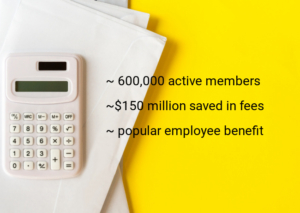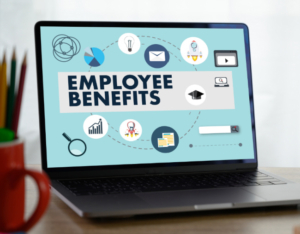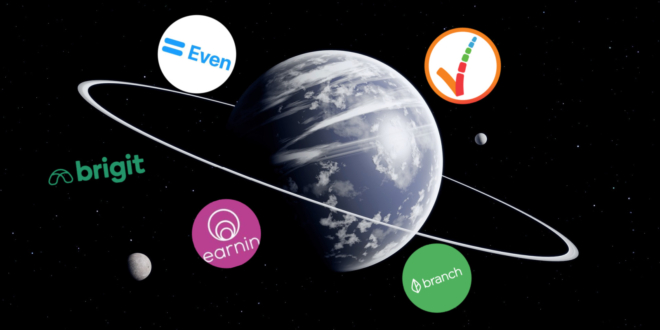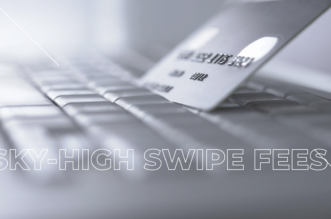By Jeff Domansky, Jan 27, 2021
The business of providing Earned Wage Access (EWA) or on-demand pay services for employees has grown quickly, particularly in the past 10 months during the COVID pandemic.
The industry is not governed by federal regulations but faces its first regulatory test with the California Consumer Financial Protection Law (CCFPL), which took effect on January 1, 2021.

EWA provider Even and four other EWA industry leaders signed memos of understanding (MOU), pledging to work with the California Department of Financial Protection and Innovation (DFPI) on oversight for the on-demand pay industry. DFPI believes them to be the first agreements of their kind between fintechs and a state regulator.
As part of it’s memorandum of understanding with DFPI, Even said it would continue to embrace policies that protect consumers and share data about the impact of Even’s on-demand pay platform on the individuals who use it.
“There are so many different business models and approaches to on-demand pay,” said Even General Counsel Priya Pai. “We applaud the DFPI’s desire to understand how different models affect consumers so they can ensure people benefit from on-demand pay.”
Second time lucky for CA consumer protection

California first tried to advance a payroll advance law supported by some EWA industry leaders in September 2019. Before it could reach final approval, it fell apart in disagreements between stakeholders. Consumer advocates wanted maximum fees of $5 per month versus $15 proposed by the industry, which was still substantially lower than the $45 that payday lenders can charge Californians for a $300 loan.
For the industry, the MOU is a positive outcome in its effort to distinguish itself from payday lenders charging exorbitant fees to users who are often economically disadvantaged or un-banked.
The five earned wage access companies entering into the DFPI agreements are Even Responsible Finance, Inc., doing business as Even; Activehours, Inc., doing business as Earnin; Bridge IT, Inc., doing business as Brigit; Payactiv, Inc.; and Branch Messenger Inc., doing business as Branch.
“These first of their kind agreements reflect the type of balanced approach and oversight we strive to provide that encourages responsible innovation,” said DFPI Commissioner Manuel P. Alvarez. “Smart regulation should be data-driven and requires a tailored, collaborative approach. We are grateful for our early dialogue with these fintech companies and expect more MOUs to be signed in the coming weeks.”
Earned Wage Access industry growing

In a company blog post (Sept 1, 2020), Even President Quinten Farmer said, “We’re now serving more than 600,000 active members each month, and by using Even, they’ve avoided more than $150 million in fees that they would have lost to payday lenders, interest on credit card charges, and overdraft charges.”
“More importantly, members have collectively saved nearly $1 billion through Even. The average savings user has $167 in their savings account after three months – often saving for the first time in their adult life – and over 300,000 members have used Even to automate savings,” Farmer wrote.
Even partnered with PayPal in October 2020 to offer earned wage access to PayPal’s global employees. Even also serves more than 600,000 active members and is the most popular opt-in employer benefit offered by Walmart, after healthcare and 401k.
On the company website, Even says 60% of employers say financial stress affects their employees; 65% of people think employers should do more for their employees, and 41% of financially stressed employees lose working time compared to peers.
EWA companies frequently cite the benefits of their services, including no cost to employers or employees (although some charge fees to either); reduced administration costs; budgeting, information, and financial wellness tools; and a positive impact on employee retention, engagement and recruitment.

Some EWA services offer sophisticated employer portals, payment, prepaid or payroll cards, customizable APIs, and even no-fee nationwide ATM access.
We’ve covered other US leaders in the on-demand pay industry recently, including those partnering with Visa to provide on-demand pay services globally.
The new CA consumer protection law, like previous efforts on car emissions, is bound to influence other states, including New York, which are also looking at protecting consumers from a wide range of perceived predatory fintech practices, data privacy, and other impacts from big tech and financial services companies.
Many in the industry set out to use technology to create services to help those who struggle economically. The Earned Wage Access industry is wise to cooperate with regulators and continue to distinguish itself from negative payday lender practices as California seeks to enhance financial services regulation and consumer protection.








LET’S CONNECT